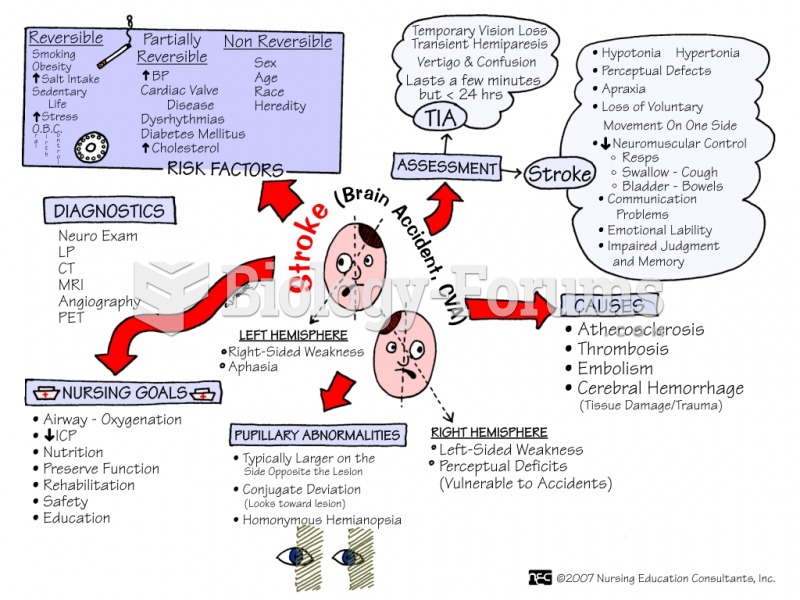|
|
|
Approximately 500,000 babies are born each year in the United States to teenage mothers.
The first successful kidney transplant was performed in 1954 and occurred in Boston. A kidney from an identical twin was transplanted into his dying brother's body and was not rejected because it did not appear foreign to his body.
According to the American College of Allergy, Asthma & Immunology, more than 50 million Americans have some kind of food allergy. Food allergies affect between 4 and 6% of children, and 4% of adults, according to the CDC. The most common food allergies include shellfish, peanuts, walnuts, fish, eggs, milk, and soy.
When blood is exposed to air, it clots. Heparin allows the blood to come in direct contact with air without clotting.
The first oral chemotherapy drug for colon cancer was approved by FDA in 2001.







